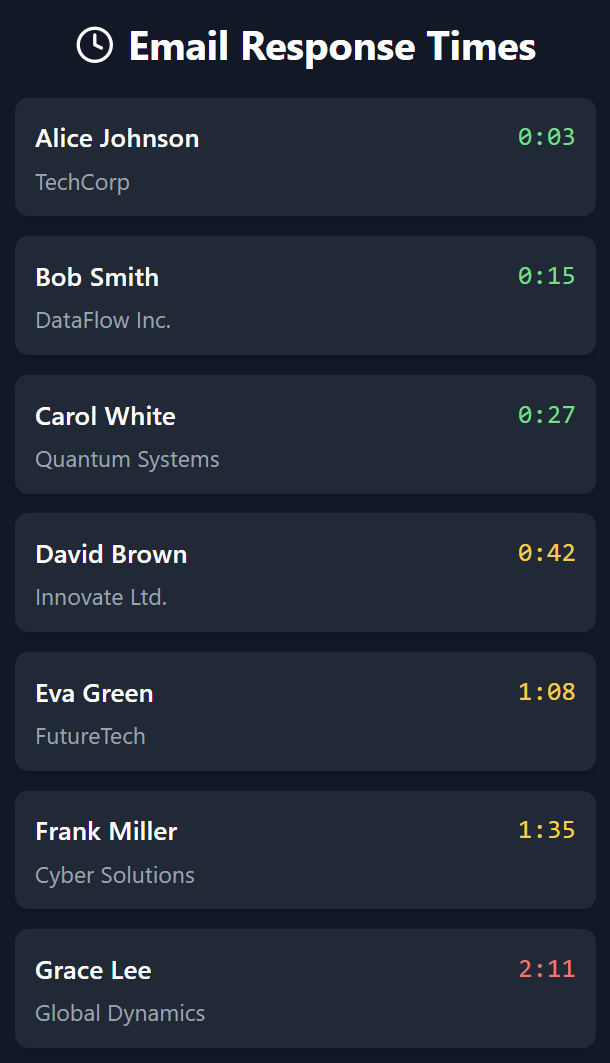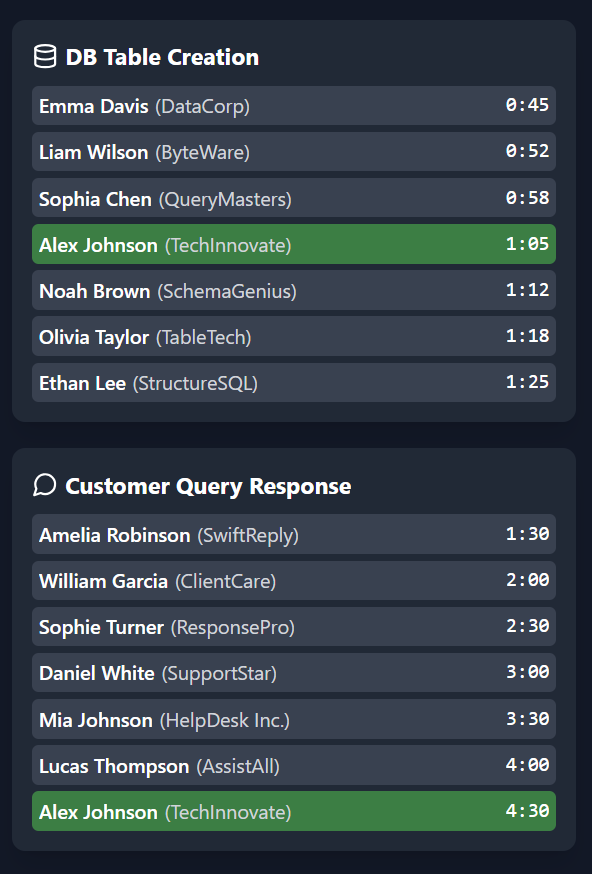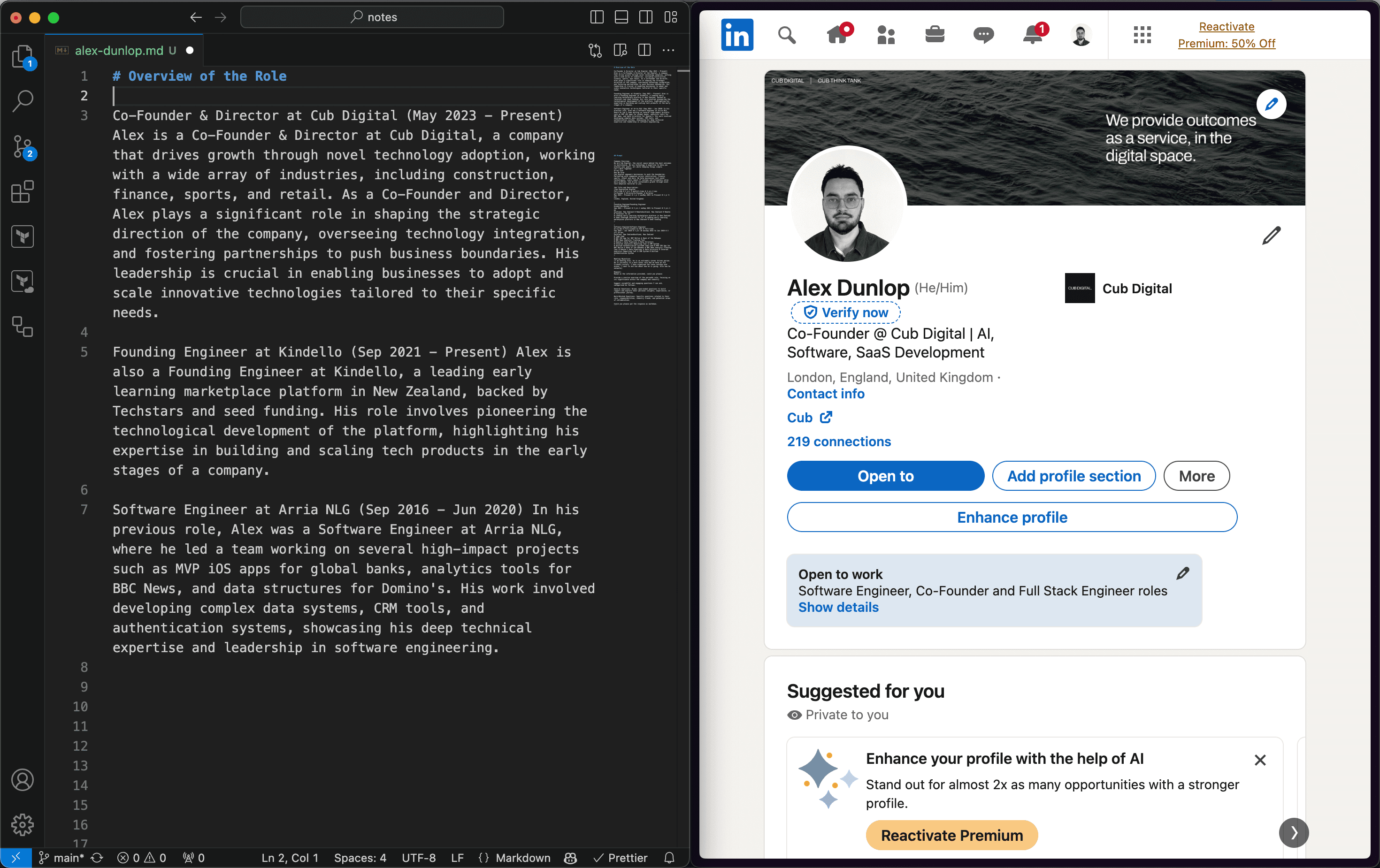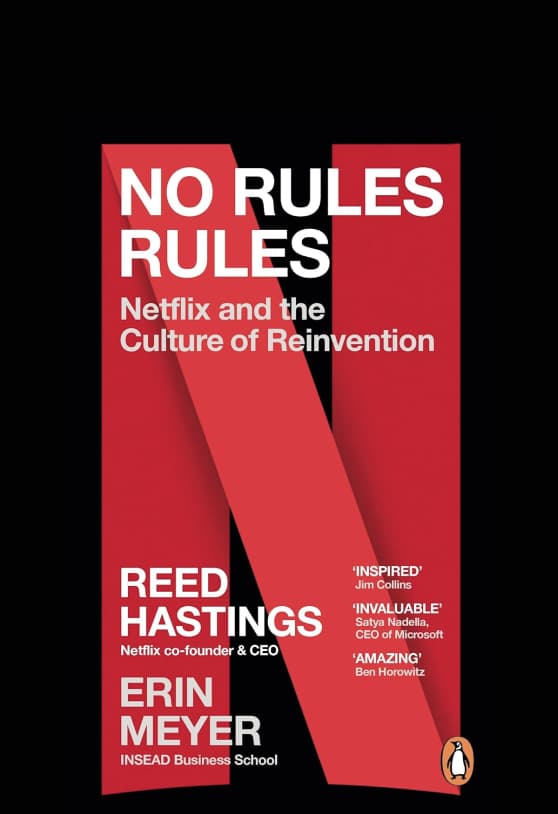Imagine if you knew exactly how fast your competitors were (we did and it was amazing)

GET THE #1 EMAIL FOR EXECUTIVES
Subscribe to get the weekly email newsletter loved by 1000+ executives. It's FREE!

The Ghost Leaderboard Concept
I love the Top Gear Leaderboard.

It's a list of lap times set by various cars on the show's test track. It's a simple yet compelling concept that taps into our competitive instincts and desire for benchmarks.
Also, it lets you know that Simon Cowell is surprisingly fast around a track!
I also love the optimisation of a Formula 1 team.
Here is a chart plotting the drop in pit stop times over the years.

It's a clear example of how a team can improve its performance by focusing on a specific metric and relentlessly driving it down.
I started to imagine what the equivalent of a leaderboard would look like in a business context. Sure, it might not be as exciting as a lap time, but the concept of a leaderboard is a powerful motivator.
I imagined a web company that had a leaderboard for a very simple task, processing an email.

Let's pause there.
Just think about that leaderboard for a second and ...use your imagination just imagine that it was actually real.
Swap the names out with your actual competitors.
If you had that information, would it change anything for you?
Alright, an email is a relatively simple task. So let's imagine a leaderboard for something more complex:
- Database table creation times
- The time it takes to design a page
- The time it takes to respond to a customer query

Surely if you were Alex Johnson and you saw that Emma Davis was making database tables in 45 seconds, you would be motivated to try and beat that time!?
Don't believe me? Maybe you're not motivated like that?
Well, research from the 1950s suggests otherwise. Introducing Social Comparison Theory.
Social Comparison Theory
Festinger's (1954) Social Comparison Theory posits that individuals evaluate their own abilities by comparing themselves to others.
The example leaderboard leverages this innate tendency, providing a constant source of upward comparison that can motivate improved performance.
Alright, maybe you're not convinced by that. Let's introduce another effect.
The Pygmalion Effect
Rosenthal and Jacobson's (1968) research on the Pygmalion effect showed that higher expectations lead to improved performance.
Again, the example leaderboard implicitly communicates high expectations, potentially triggering this effect.
So what is the Ghost Leaderboard Effect?
When we're presented with evidence (even if hypothetical) that higher levels of performance are achievable, it challenges our assumptions and can spark a dramatic shift in mindset.
In this instance, the ghost is the fact that you don't actually know if Emma Davis is making tables in 45 seconds. But the mere fact that you're thinking about it can lead to improved performance.
I've coined the term "ghost leaderboard effect" to describe a phenomenon where creating a hypothetical leaderboard for a business task, populated with times that surpass your current capabilities, can lead to performance improvements.
An experiment in our own company
This article came about because of an experiment we ran in our own company.
In a retrospective meeting with our development team, we had a task that currently takes us about 6 hours to complete. Rather than looking at ways to get that down to 4 hours, we set a target of 5 seconds.
We then imagined what that future would look like.
Running through the exercise, here are some tangible things for you to take away.
- Challenge Perceived Limits:
Regularly question and push the boundaries of what's considered "possible" in your organisation.
Too often, I see organisations with step change improvement targets as opposed to aspirational aims.
Most people are only searching for incremental improvements as opposed to chasing what we covered in this talk (being fundamentally different).
Have we achieved our 5-second automation target? Not yet. But the conversation was one of the most enjoyable I've had in a while as we reimagined the way we work.
It led us to rethink every assumption about our development process as we constantly had to imagine a future that looks radically different to the one that we operate in now.
- Create Aspirational Benchmarks:
Set ambitious yet seemingly attainable goals based on aggregated top performances. Building on the example above, the 5-second target was more aspirational and engaging than a 4-hour target.
The 5-second target is scary. There is nowhere to hide. You either hit it or you don't.
Dropping a process from 6 to 4 hours is certainly helpful, but it's easy to hide from the success or failures on the project as there is no large consequence if you do something in 4 hours and 20 minutes.
Whereas if you take 5 minutes for your 5-second task, you know you've failed.
We had to reimagine our entire development process top to bottom. So many good things came about by simply asking the question of how we might achieve that.
Now imagine if we had a leaderboard showing that our competitor was doing it in 5 seconds already! How much more motivated would we be?
- Leverage Social Proof:
Highlight real top performers to show what's possible and drive healthy competition. It's difficult to do this directly in your industry, but search Reddit and Quora for examples of situations where people have talked about how fast they do things.
For example, I found a post on Reddit where someone was talking about how they could create a table in 5 minutes. That could be the new benchmark. Hey, if this random person on Reddit can do it, why can't we?
- Foster a Growth Mindset:
Encourage the belief that abilities can be developed through dedication and hard work. Of course, this is easier said than done. But the ghost leaderboard concept can be a powerful tool for fostering this mindset.

Conclusion
I'd encourage you to take one process of your business and then imagine a world where you were 100x faster at it - how would you do it? Imagine that your competitors are already there.

















